
When we reach our 40s, 50s, 60s and 70s+, it becomes harder and harder to lose weight. Read here to learn why that is – and what you can do about it.
In my time as an online weight loss coach, I have worked with hundreds of women over 40 who are doing everything they can think of to lose weight. What I’ve found is that most of them are trying to lose weight like they did in their twenties and thirties – meaning, they’re restricting their food intake to cut calories and exercising like crazy.
But when we reach 40, our biology changes, as do our lifestyles. Our hormones and responsibilities undergo massive shifts, and weight loss methods we used when we were 25 simply will not work at 45.
So what can be done to lose weight after 40? In this article, I outline the 9 reasons why losing weight after 40 is so hard – and what you can do to not let them affect you.
1. Insulin Resistance
What happens to how our bodies respond to insulin after we turn 40?
Insulin’s main job is to regulate and control the amount of sugar (glucose) in the blood. As we age, the cells in our bodies don’t respond as well to insulin; combine this with other age-related hormonal imbalances and weight gain, you sometimes end up with an insulin resistance. Not only does a resistance to insulin make it difficult to lose weight, but it can cause Type 2 diabetes and other cardiometabolic disorders.
How does insulin help with weight loss?
Insulin transports sugar to the cells which is then used as energy. If the body has excess glucose, it is stored in the liver as glycogen. Some of it is also converted into fatty acids through a process known as de novo lipogenesis.
To lose weight, fuels are burnt through a process known as oxidative priority. The order is as follows: alcohol, ketones, glucose, proteins, and eventually body fat.
A good insulin sensitivity makes it easier to lose weight since more body fat is burned in the oxidative hierarchy.
However, when cells in the liver, fat and muscles prove unable to take up glucose, this leads to a condition known as hyperglycemia, which means there is too much sugar in the blood.
Hyperglycemia causes the pancreas to secrete more insulin to counter the excess sugar. This leads to hyperinsulinemia. Since more insulin does not solve the problem, various clusters of metabolic abnormalities ensue. This is known as the metabolic syndrome or insulin resistance syndrome.
This all inhibits the rate of fat oxidation and oxidative hierarchy or priority. In other words, due to insulin insensitivity and excessive carbs intake, your body does not break down body fat which should normally result in weight loss. It is stuck at the glucose phase on the oxidative hierarchy.
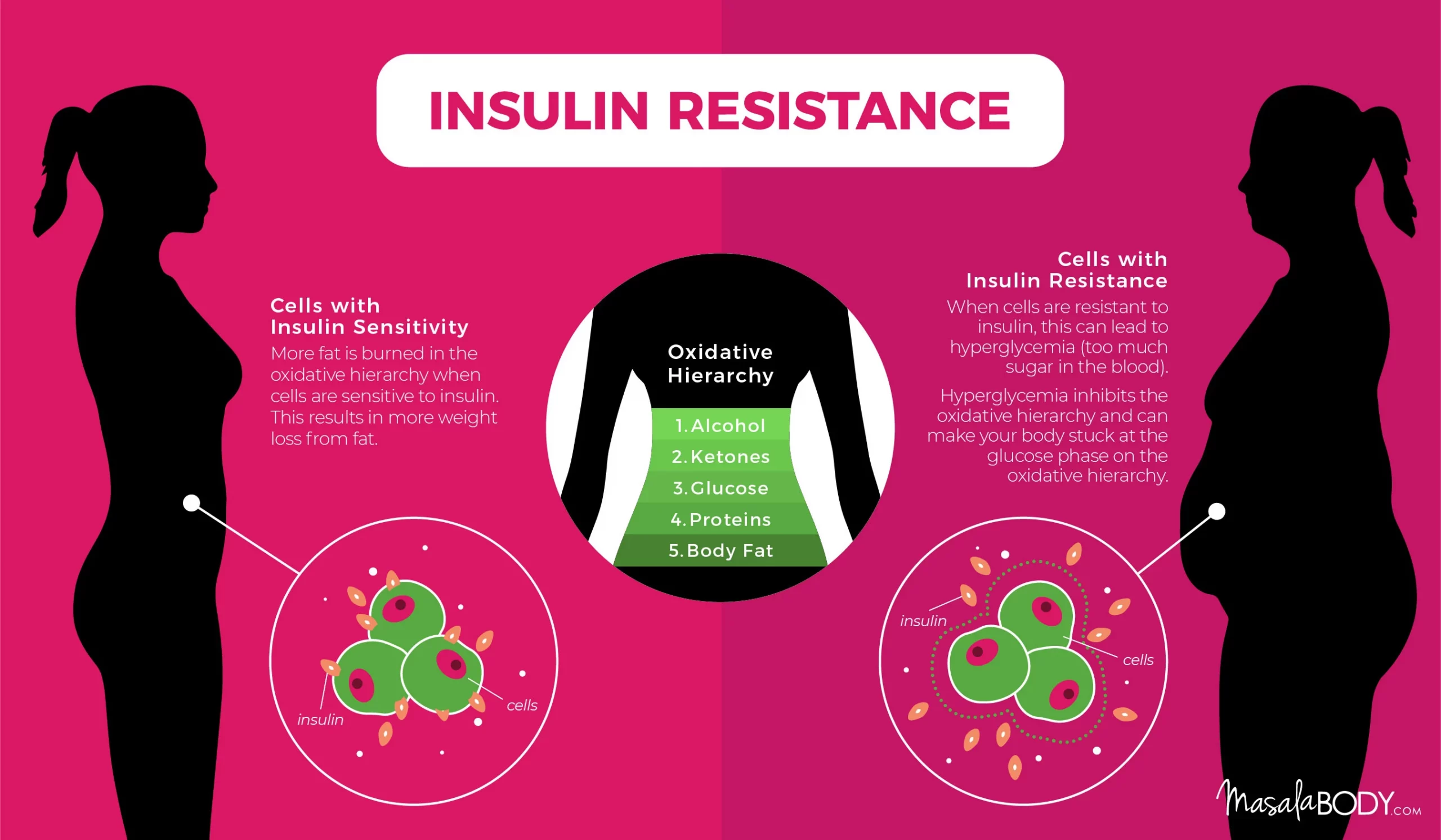
What should we do to improve our body’s response to insulin?
Improving your diet will be the best way to improve your body’s response to insulin. You want to reduce your intake of carbohydrates like refined grains and sugar. Replace these with healthy, fibrous carbs that don’t break down as quickly to sugar, more protein, and beverages free of sugar.
Exercise is also a great way to improve your response to insulin. Strength training will increase muscle mass and help burn body fat by increasing insulin sensitivity.
2. Estrogen levels vary

How do estrogen levels change after we turn 40?
As we approach perimenopause (typically happens in our 40s), our estrogen levels fluctuate like a roller coaster. By the time we reach menopause, very little estrogen is produced.
How do changes in estrogen levels affect weight loss?
As a result of lower levels of estrogen, our sugar cravings increase. We crave sugar for energy during perimenopause, and dietary carbohydrates are the first option for most of us.
Additionally, estrogen is responsible for fat distribution around the thighs, breasts and buttocks. As we age and get to the perimenopause and menopause stage, fat tends to build up in these areas, instead of being more evenly distributed.
What should we do to fight sugar cravings and improve estrogen levels?
- Eat more protein: Studies have shown that protein can reduce sugar cravings. Meat-based proteins like poultry and fish as well as plant-based proteins like tofu and lentils will help.
- Hydrate: Sometimes your hormones can mistake thirst for hunger. It’s therefore important to keep your body hydrated by drinking 1–2 liters of water per day. However, watch out for sodium content to avoid water retention.
- Whole grains: Discard refined carbs and opt for whole grain. Go for wild rice, brown rice and whole grain bread rather than white bread and rice.
3. Increased Cortisol production
Why does our cortisol increase after 40?
When we hit 40, our lives tend to become more stressful. This gets our adrenal glands to work overtime, which leads to an increase in cortisol production.
How does increased cortisol affect weight loss?
The hypothalamic-pituitary-adrenal axis (HPA axis) is the body’s mechanism for combating stress. When one goes through chronic stress or Hypercortisolism, the HPA axis system becomes dysregulated and dysfunctional. The effects of stress on the immune system, neuroendocrine and metabolic system contribute to the development of obesity and insulin resistance. As a result, sugars are not utilized properly and we tend to eat more unhealthy foods that lead to weight gain.
How to reduce your cortisol levels
To reduce your cortisol levels, you need to reduce your stress. How you do this is dependent on your lifestyle, career, and responsibilities, so there is no one way to accomplish this. But here are tips:
- Outsource what you can: If you have the budget to afford a cleaning service, a dog-walker, or landscaper, hire them. Save yourself the stress of a dirty bathroom, overgrown lawn or dog whining at the door.
- Go to the doctor: If you have worries about your health, go see the doctor. Don’t put it off because life gets in the way, and don’t gaslight yourself into thinking your health worries are imagined. Go to the doctor and get peace of mind.
- Take time for self-care. Self-care includes activities like getting a haircut, exercising, and pursuing things that interest you.
- Try yoga and/or meditation: Studies have shown that yoga may help reduce your stress and anxiety. Meditation can also help you feel more relaxed.
- Reduce your time on devices. Studies have shown a link between screen dependency and stress.
- Get more sunshine and fresh air
4. Ghrelin levels increase

What is ghrelin?
Ghrelin is the hormone responsible for stimulating hunger and increasing appetite. After we turn 40, the level of ghrelin in our body tends to increase.
How does ghrelin impact weight loss?
During perimenopause, ghrelin levels shoot up, making us feel hungrier, thus leading to more food consumption. At the same time, leptin levels go down. Leptin is the hormone tasked with signaling your body when you are full after a meal. Losing weight therefore becomes a challenge due to the increased levels of those two hormones.
How do you stop weight gain due to ghrelin increases?
Your diet is a big factor when it comes to reducing your hunger urges caused by increased ghrelin:
- Eat fiber rich meals, which will make you feel fuller for longer
- Eat more proteins since they provide satiety and significantly slow gastric emptying
- Avoid consuming leptin-suppressing foods such as GMO laden, processed and hormone treated foods
5. Thyroid changes
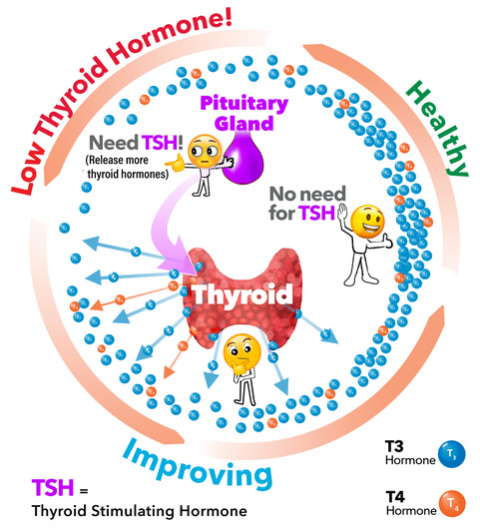
How does our thyroid change after 40?
The thyroid is responsible for producing the hormone which regulates metabolism. As we age, the thyroid can irregulate, resulting in a hormone imbalance and a condition known as hypothyroidism.
How do thyroid changes affect weight loss?
The thyroid gland controls fuel efficiency. Optimum levels of thyroid hormones ensure fuels are burnt at higher rates, regulating weight. When we consume the same amounts of food but our bodies produce less thyroid hormones, fuels are burnt at much lower rates, leading to weight gain, insulin resistance and diabetes.
How to fix changes in the thyroid
For issues related to your thyroid, you need a medical professional. A medical professional will perform one or more of the following tests to see if there is trouble with your thyroid:
- TSH test – checks the amount of TSH hormone in your blood and is indicative of how much T4 and T3 is made. High levels of TSH indicate hypothyroidism, while low amounts indicate hyperthyroidism
- T4 test – High levels suggest hyperthyroidism. Low levels suggest hypothyroidism.
- T3 test – used for confirming T3 tests
- Thyroid antibody tests – diagnosis of Hashimoto’s disease and Graves’ disease
6. Blood sugar imbalances

Why does blood sugar become imbalanced after 40?
Age-related reasons why our blood sugar becomes imbalanced are due to diet and lack of physical activities. We consume more refined carbs, sugars and processed foods instead of healthy balanced diets, and we lead more sedentary lifestyles.
What happens when our blood sugar is imbalanced?
When our blood sugar becomes imbalanced, more sugar stays in our bloodstreams. This leads to insulin resistance, which as we learned earlier in this article, brings on a host of issues that impact weight loss.
How to fix it
Eat low-glycemic foods that don’t cause a blood sugar spike that’s as quick and steep as other foods. Learn how to combine foods to slow the rate of digestion and the breakdown of carbs so that you don’t experience blood sugar spikes and valleys, which cause fat gain.
In some cases you may need to take medication to help with your blood sugar. Seek out the advice of a medical professional if you have worries about your blood sugar balance.
7. You lose muscle mass
What happens to our muscle mass when we turn 40?
When we get to 40 and older, sarcopenia sets in. Sarcopenia is the loss of muscle mass and decrease in its function and strength. This is because of metabolic biochemical and hormonal changes.
How does a reduction in muscle mass impact weight loss?
When we lose muscle mass, it reduces our resting metabolic rate (RMR). RMR is the total number of calories burned when your body is completely at rest. The body sees a 2-4% reduction in RMR in each decade of life.
How do we reduce our muscle mass loss?
To decrease your muscle mass loss as you age, do the following:
- Eat protein. Malnutrition accelerates muscle wasting. On the flip side amino acids from proteins stimulate muscle protein synthesis.
- Prioritize strength and resistance training. Exercise that includes the use of weights, resistance bands and resistance training will help build muscle mass, along with increasing insulin sensitivity
- Check your vitamin D levels. Vitamin D helps with muscle protein synthesis and building muscle strength.
8. Less sleep

Why do we get less sleep after we turn 40?
Any woman over 40 will tell you this is a silly question, but I’ll answer it anyway – by the time we’re 40, we are juggling a career, a household, and a family. Additionally, we’re managing projects that fall outside of those categories – obligations with the kids’ school, or caring for an elderly relative, just to name a couple. The stress of these responsibilities impacts our sleep.
In some cases, women stay up late because it’s the only time they have to themselves. Once the kids are in bed, they can finally do the things they want to do, even if it causes them to miss out on precious sleep.
How does less sleep cause weight gain?
Sleep has long been proven to have an impact on weight loss. A lack of sleep causes your body to run inefficiently, preventing it from burning fat. Lack of sleep also increases your sugar cravings, and it’s almost impossible to not give into them when you need a pick-me-up.
How do you get more sleep?
As an adult, you should aim for 7-8 hours of adequate sleep each night. To get more sleep, try the following:
- If you have the budget, outsource household chores so you don’t have to do them when the kids go to bed
- Set boundaries at work. Turn off your notifications before bed time and refuse to respond to less than urgent emails when you’re not at the office.
- Avoid consuming a lot of alcohol. Alcohol has been shown to impact our sleep.
- Do not feel compelled to volunteer for everything – your sleep should be priority #1, and no fundraiser or extracurricular commitment should take precedence over it
- Set a bedtime of 8-9 hours before you need to wake up, so you will have the time to drift off to sleep and get a metabolism-boosting night’s rest
- Do what you can to reduce stress; you can try using the tips mentioned earlier in this article.
9. Lack of a Weight loss mindset
What is a weight loss mindset?
Simply put, the weight loss mindset is motivation to lose weight because you believe that you can lose weight.
Why do women over 40 have trouble finding a weight loss mindset?
Many women that I work with struggle getting into a weight loss mindset because of past traumas from failed attempts.
Dieting is like a rite of passage for many women. From the time we’re a child, it’s ingrained in us that fat=bad, and we need to do what it takes to prevent weight gain. When we become teenagers, many of us try dieting; when we hit our twenties, most of us are actively managing our weight. We are told that to lose weight, all you need to be is disciplined.
But then our diets fail. We try calorie-cutting and fad diets that aren’t rooted in nutrition, and we don’t lose weight. When these failures happen repeatedly, we think, I’m just not disciplined enough; and it puts us off from thinking we have the ability to lose weight.
How do you develop a weight loss mindset?
In my article about How Mindset Affects Weight Loss, I talk about a client, Patty, who had trouble developing a weight loss mindset. Here are some tips from that article:
- Say to yourself, “I give myself permission to lose weight!” As corny as it might sound, saying the words out loud to yourself can subconsciously give you the permission you need to try to lose weight.
- Reframe “losing weight” as “focusing on a healthy lifestyle.” For some, the concept of weight loss is extremely loaded. Rather than thinking of it as “I need to lose weight,” I recommend shifting your mindset to: “I want to focus on a healthy lifestyle.”
If you are interested in learning more about how Masala Body’s programs can help you on your weight loss journey, see the page for my 8-Week Slim Down Personal Weight Loss Program. You can also book a call with me if you’re ready to get started.
And don’t forget to check out Masala Body’s weight loss success stories!



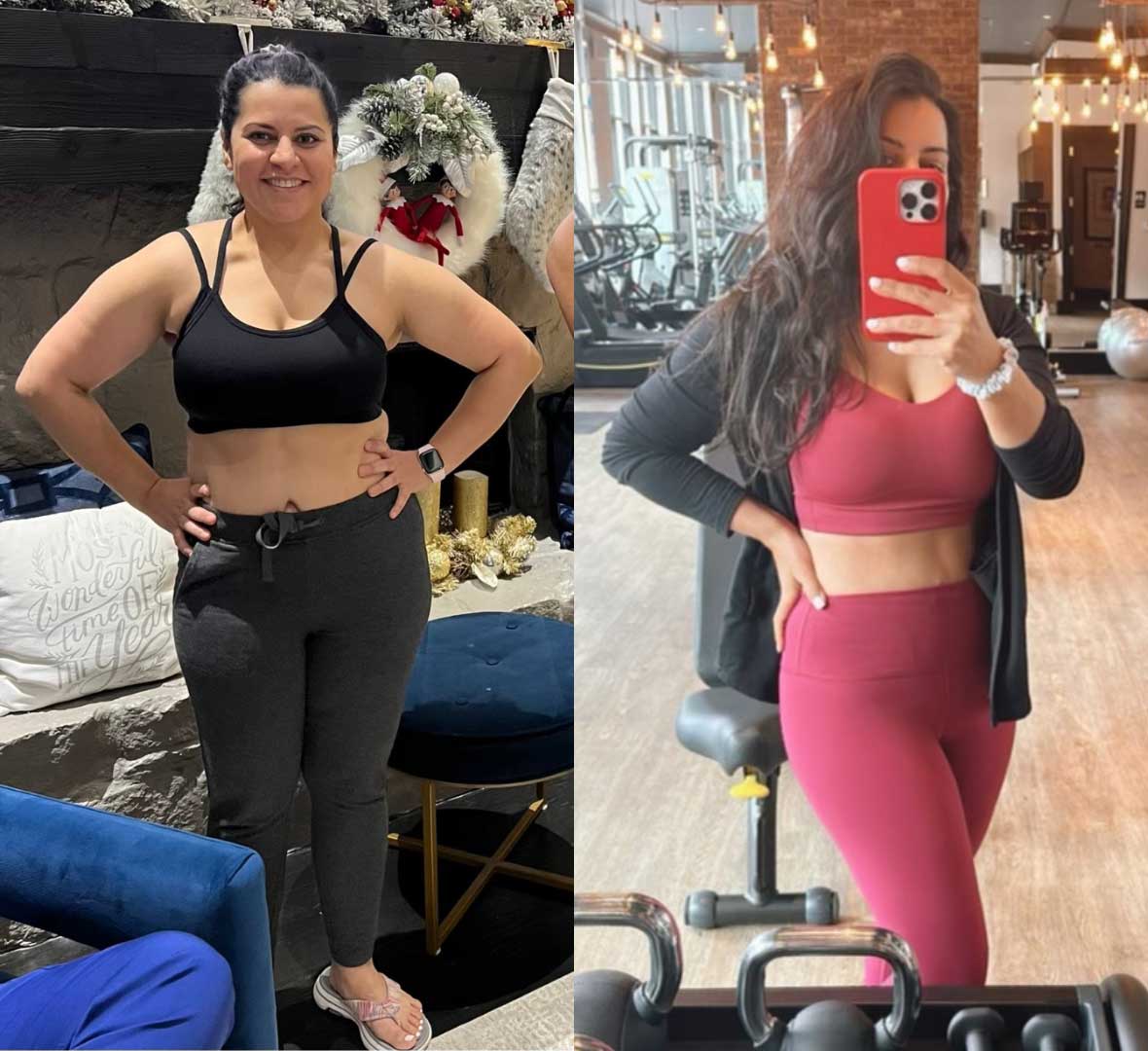

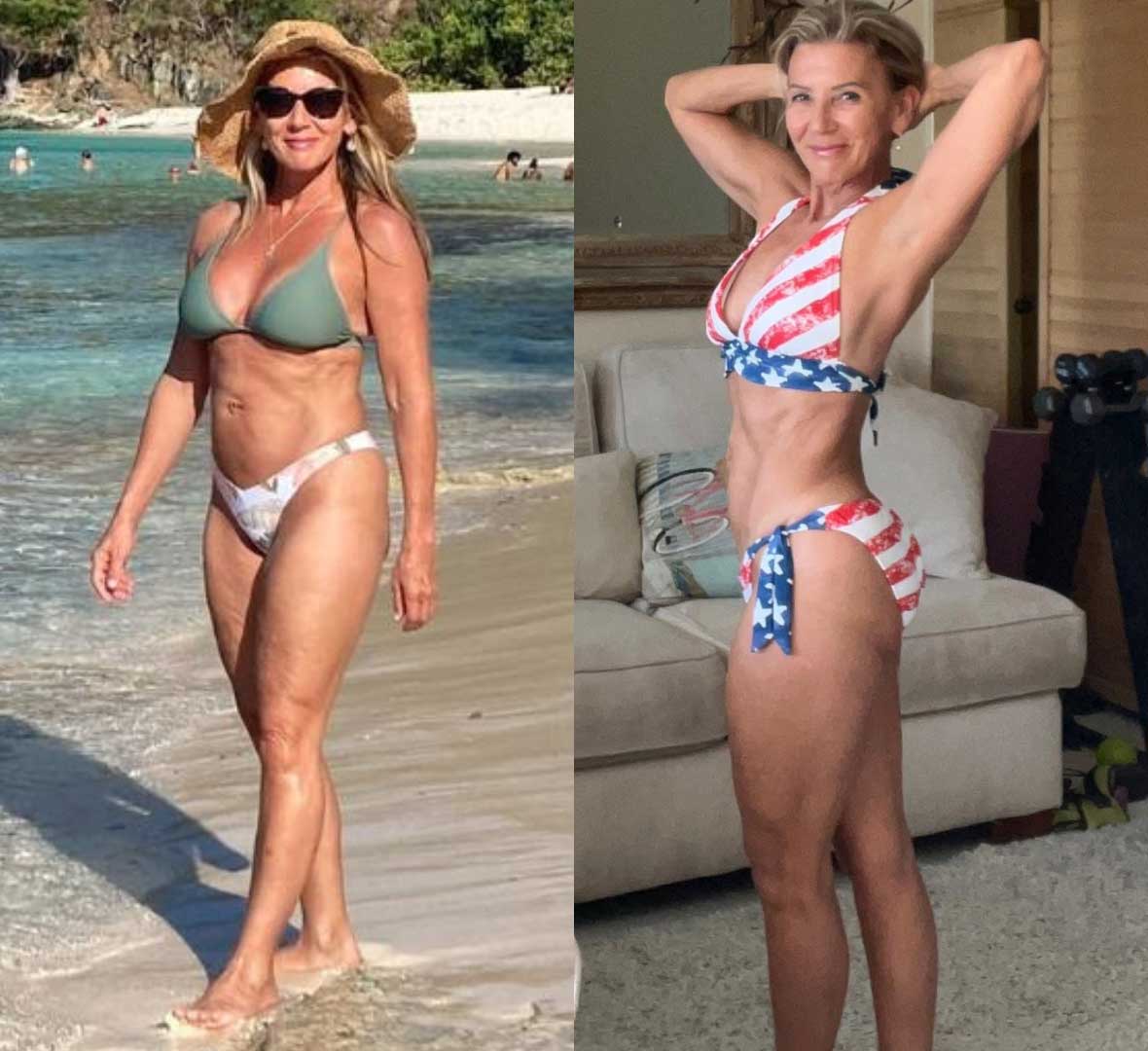


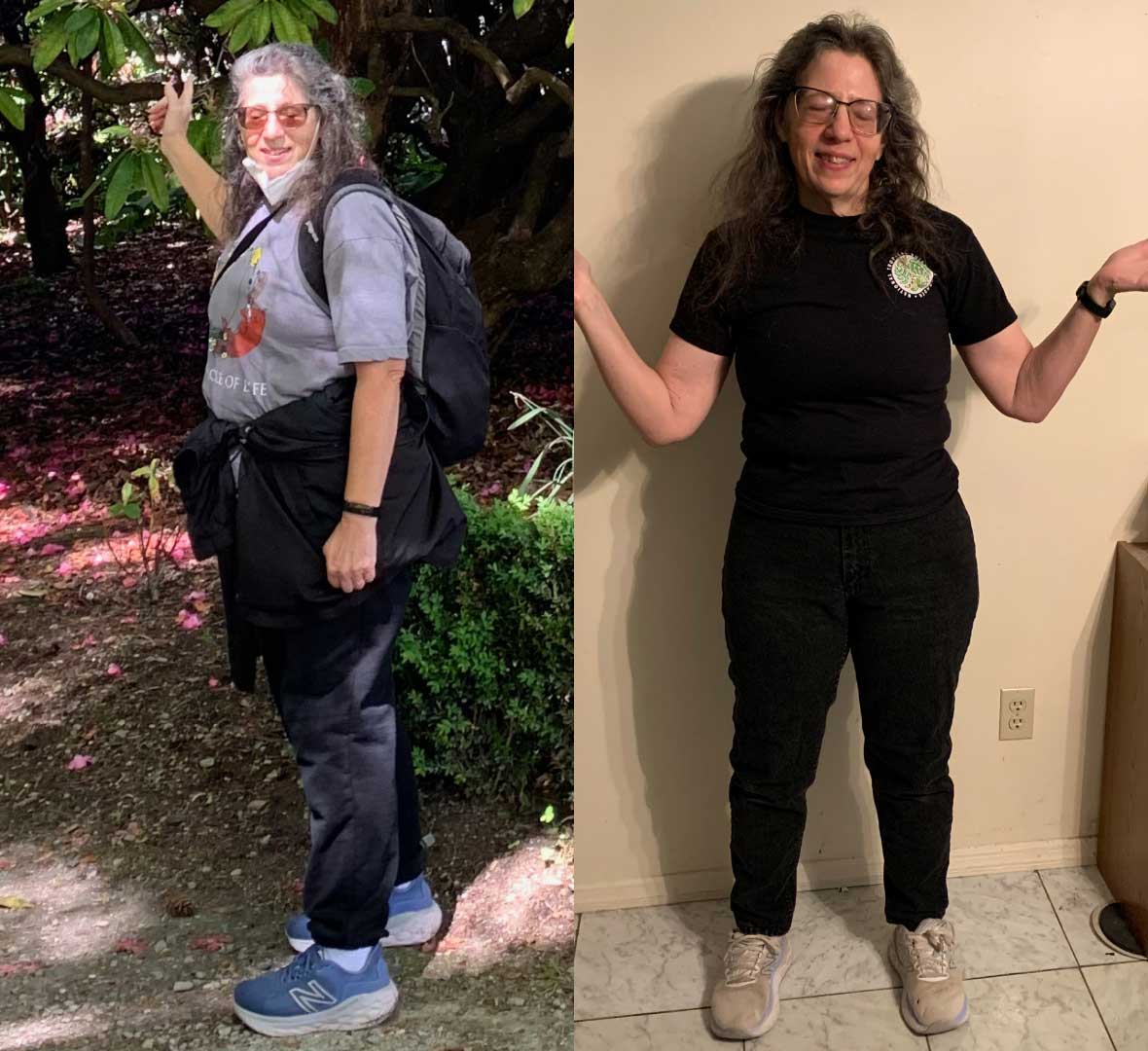

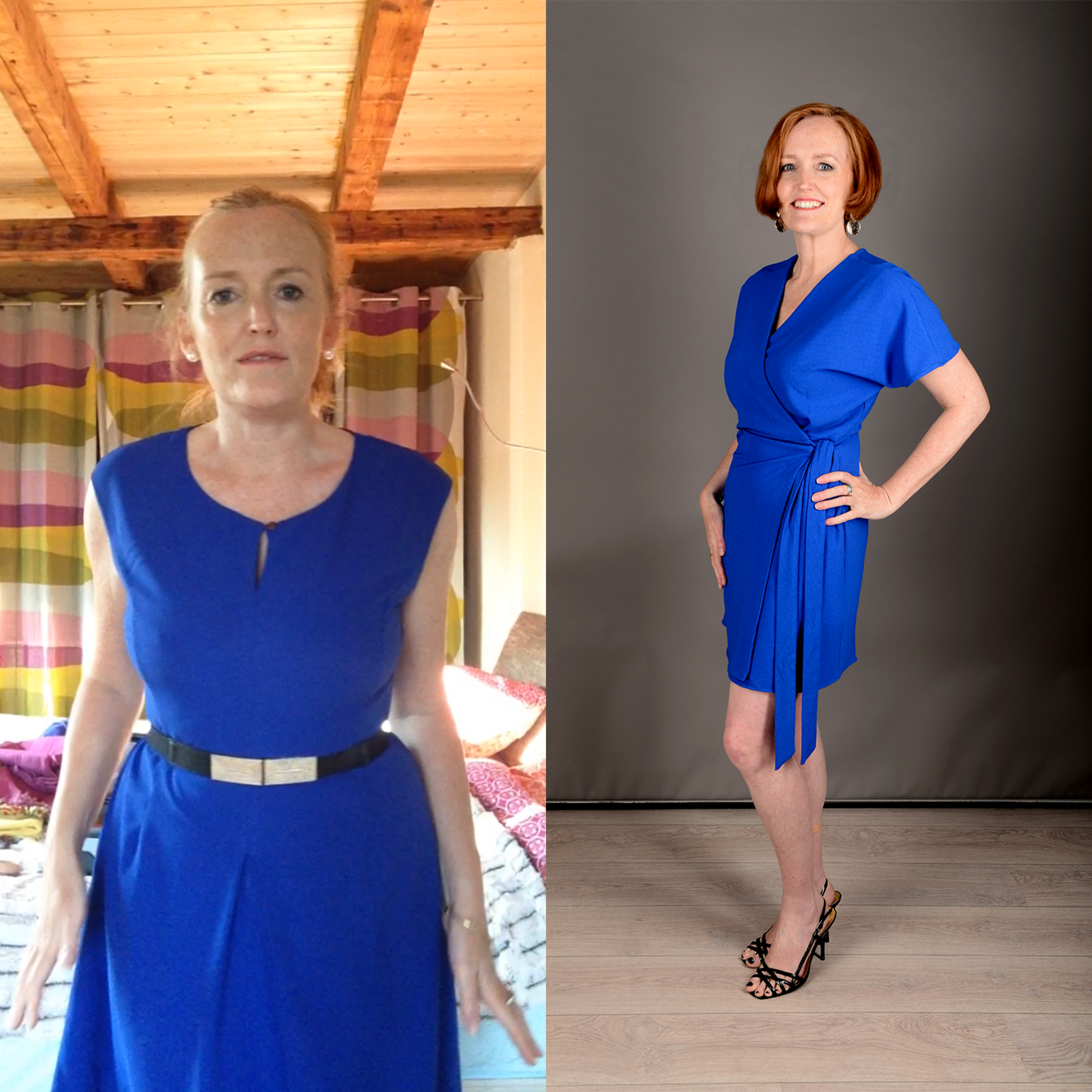
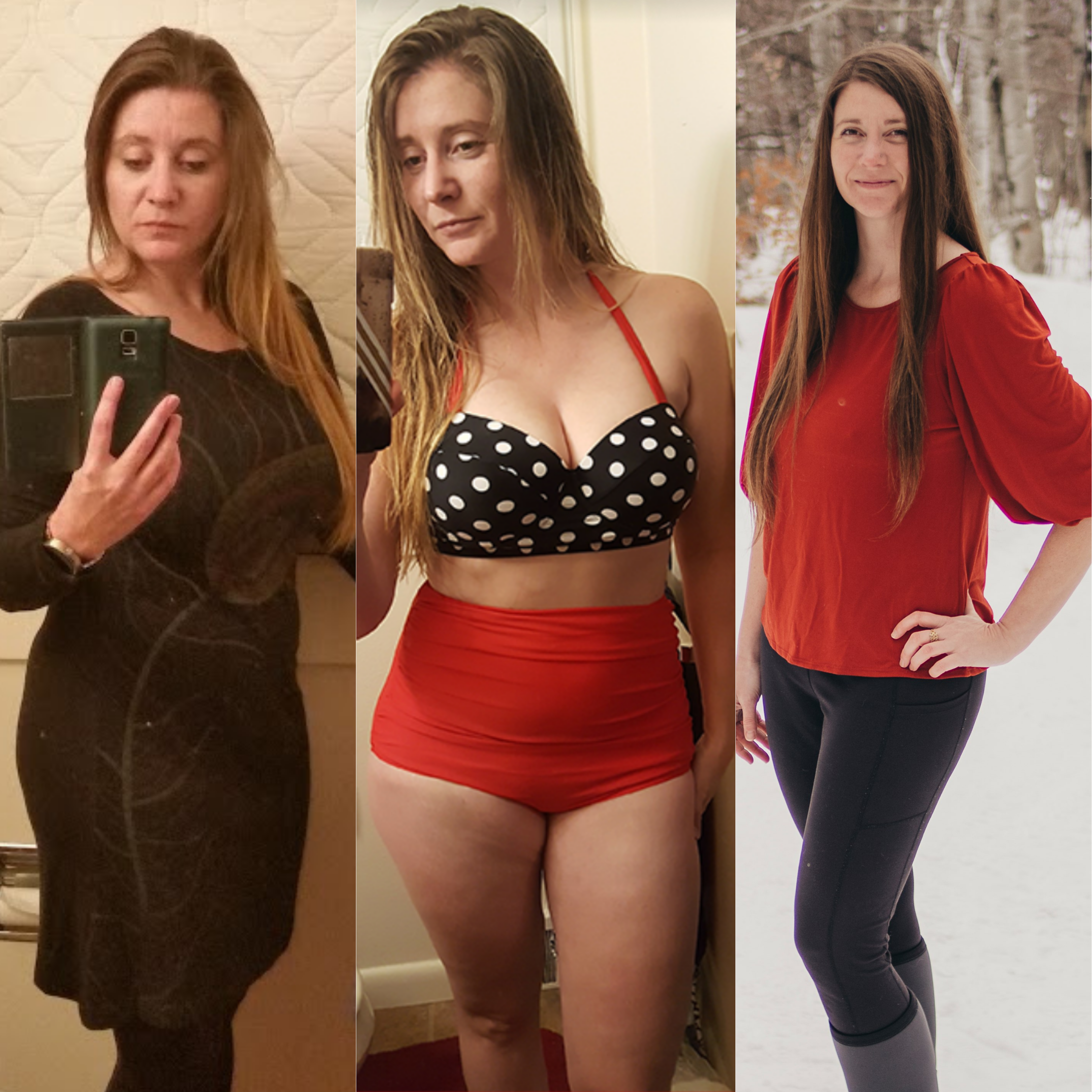


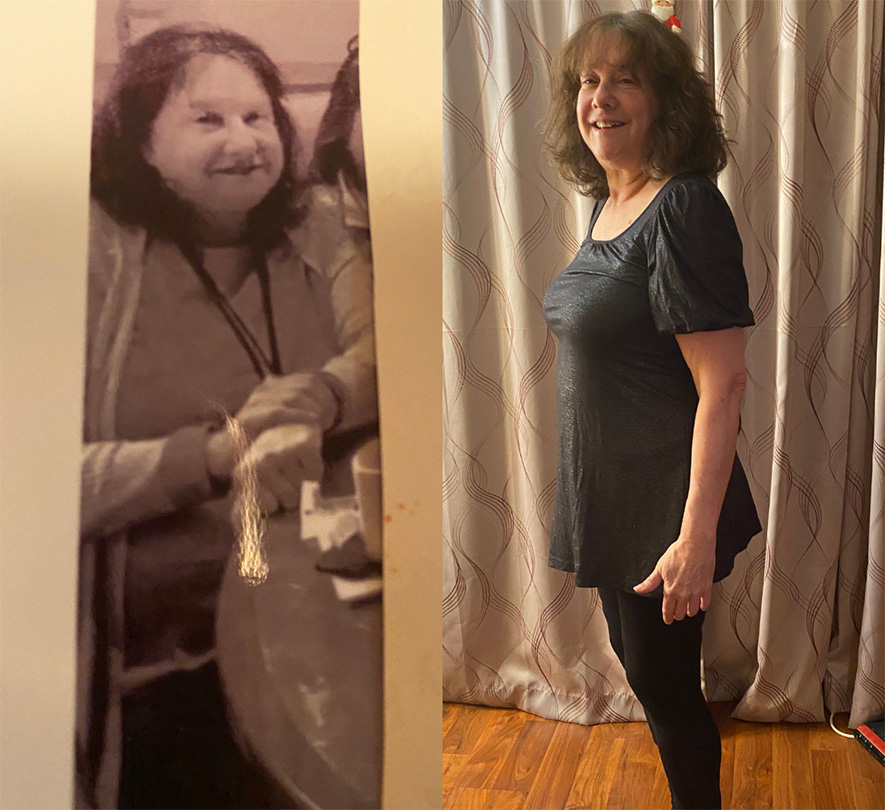




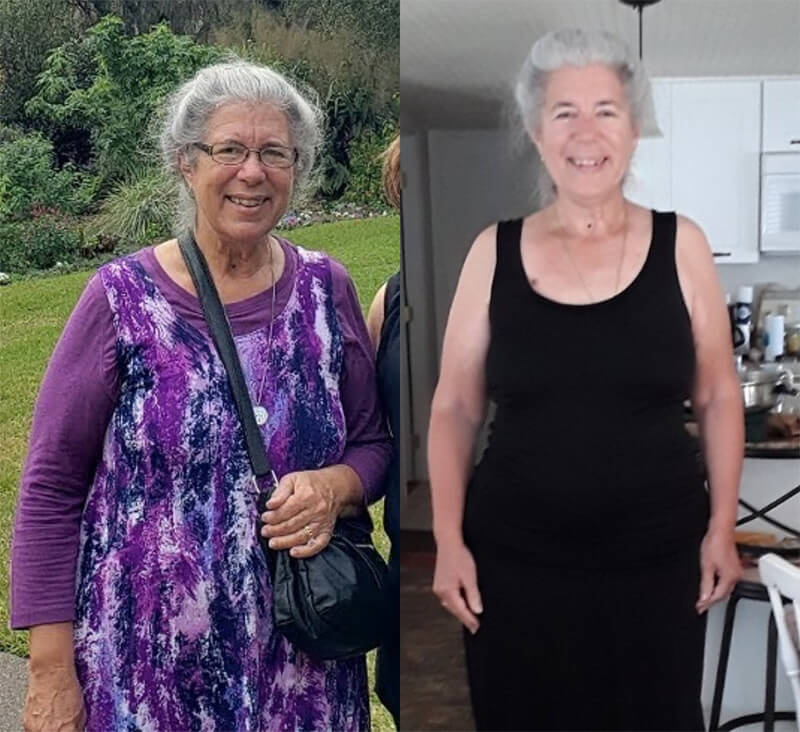
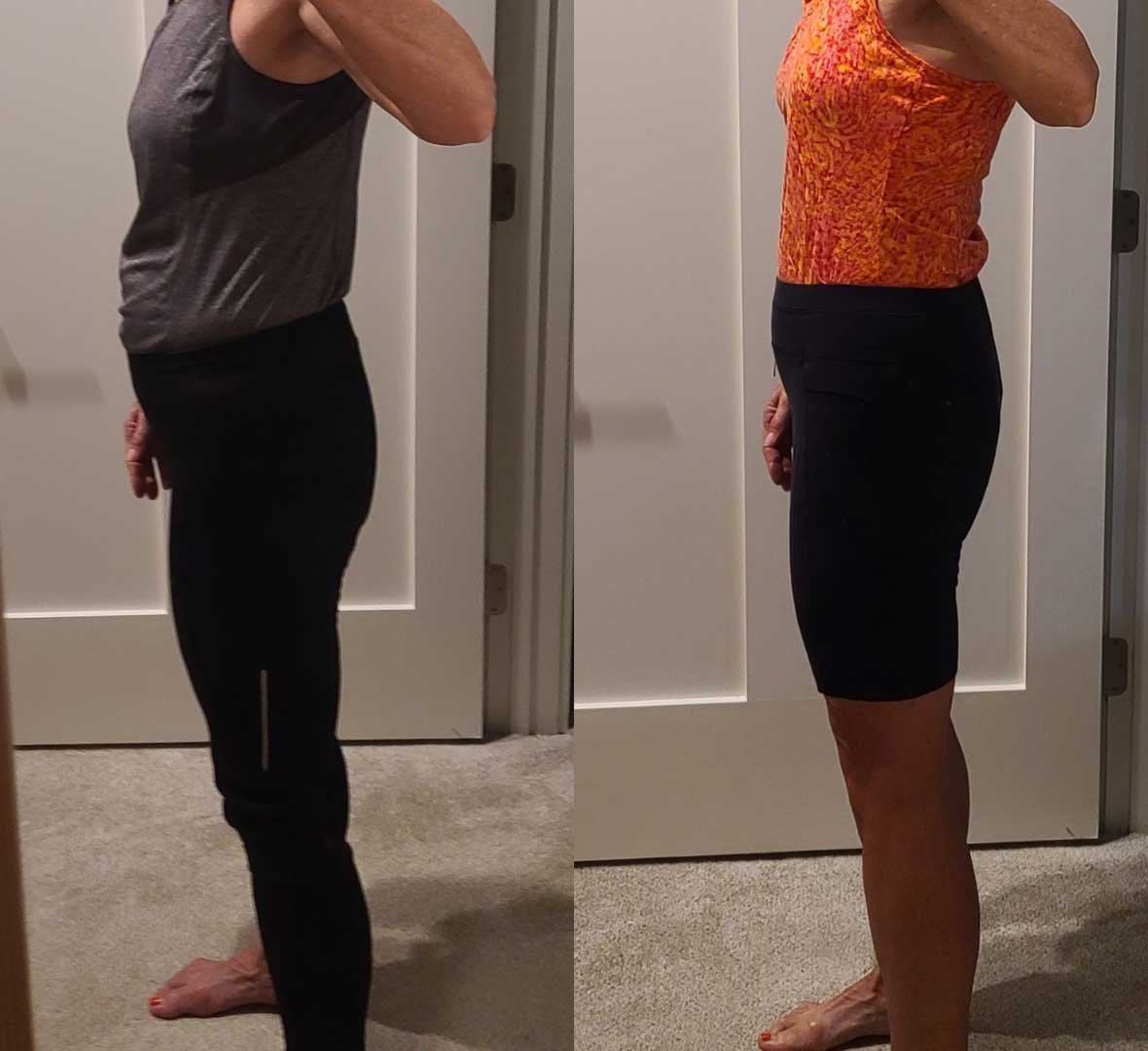









Reader Interactions